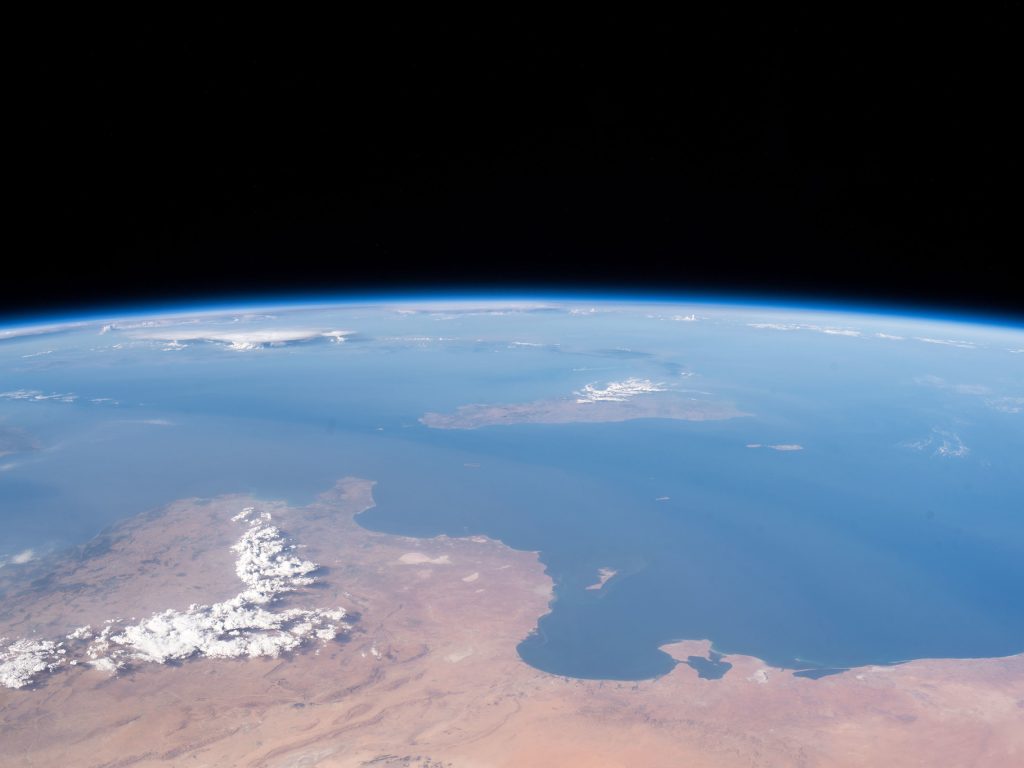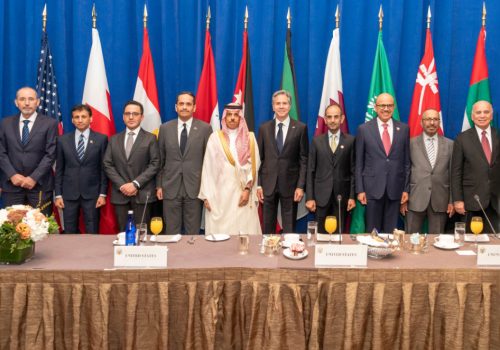The geopolitical transformations of the last decade, combined with knock-on effects of the war in Ukraine, are impacting Middle East and North Africa (MENA) countries’ respective domestic efforts to implement socioeconomic reforms. Within the region, there appears to be no homogeneity in the reform attempts undertaken against the backdrop of these two dynamics. From a social and economic perspective, the war in Ukraine has affected MENA countries in several ways, mostly through the substantial surge in food and energy prices. The governments in the area are therefore paying close attention to the economic repercussions of this faraway armed conflict on their respective societies.
In oil-producing countries (such as the Gulf Cooperation Council members and Algeria), the increase in hydrocarbon prices has been a bonanza, and the socioeconomic implications of the Russia-Ukraine confrontation have continued to be soft thus far. Thanks to their financial gains, these states have been able to maintain high social welfare spending and have adopted timely measures to address potential food security challenges—for instance, higher bills for imported grain. This, in turn, seems to have decreased the risk of new waves of mass protests associated with the consequences of mounting global inflation, at least in the short term. Nevertheless, the injection of unexpected financial revenues to these governments appears to have delayed a much-needed debate over the obsolescence of the rentier system.
Conversely, oil-importing countries (such as Tunisia and Egypt), which were already grappling with profound economic and financial crises, have been significantly struck by the economic shock waves of the war. Global food prices have hit record heights since 2010-11, when the sharp increase in staple costs within these fragile contexts contributed to triggering the widespread protests known as the Arab Spring. Nowadays, these countries are bearing the brunt of a complex geopolitical and economic conjuncture, and their domestic stability is increasingly at stake.
This joint effort by the Atlantic Council’s North Africa Program and the Italian Institute for International Political Studies (ISPI) turns a spotlight on the ability and willingness of specific countries (i.e., GCC, Algeria, Tunisia, and Egypt) to realize socioeconomic reforms as the Ukraine war continues to permeate the international landscape. This work will also examine the extent to which the new great power competition between China and Russia on one side and the United States on the other is affecting the odds for each MENA country to improve and enhance institutions for good governance.
In the GCC countries, state authorities have historically been amenable to implementing social and economic reforms through a top-down approach, which curtails domestic needs and is convenient to their respective government interests. Shifting geopolitical balances do not sway decision-makers to enact reforms unless they are linked to their international reputation and post-hydrocarbon “visions.” This is also largely due to the West’s inability to impose conditionality clauses when cooperating with GCC countries. However, the Gulf monarchies seem keen to implement reforms in the security sector, particularly given the last decade’s leaning toward Sino-Russian interventionism in the Middle East. In fact, they are increasingly looking eastward for military procurement and strategic partners with whom to cooperate in third countries.
In Algeria, oil and gas booms linked to sudden shocks on the international stage have traditionally quashed debates over the socioeconomic reforms the country needs to implement to avert new energy market slumps and cycles of economic crisis. The rebound in energy production and prices associated with the war in Ukraine is no exception to this equation. Against this background, it remains to be seen to what extent the Algerian establishment will be eager to advance national plans (unveiled in September 2021) for overarching reforms meant to support the post-pandemic recovery, transition toward a more inclusive and diversified growth model, and reinforce governance and social cohesion.
Tunisia, for its part, is in dire need of structural reforms that will possibly enable the county to grow sustainably over the next decade. Still, President Kais Saied, who dissolved parliament last year, seems more worried about allowing himself more powers through constitutional reform than reforming his country. With inflation nearing 9 percent, Tunisians have taken to the streets chanting their frustration in light of food shortages and price hikes for both cooking gas cylinders and fuel in general. The International Monetary Fund (IMF) is set to roll out a new rescue package to stabilize the country’s ailing economy, but not without conditions. The imposition of political reforms and austerity measures will be a likely scenario for the foreseeable future, which in turn will make macroeconomic maneuvers all the more difficult.
In Egypt, President Abdel Fattah al-Sisi has spent much of the past decade investing in gargantuan infrastructure projects across the country to the detriment of the country’s cultural heritage and national identity. In an effort to erase what little is left of Egypt’s Arab Spring, Sisi has remodeled large parts of the city, including the iconic Tahrir Square, where thousands of protesters gathered to demand change during the 2011 uprisings. With an estimated sixty thousand political prisoners detained, opposition forces in Egypt are left with no choice but to mistrust the president and ask for elections and greater political participation. As renewed talks with the IMF for another bailout are underway, and the 2024 presidential polls are around the corner, Sisi may find himself compelled to engage with the opposition and show signs of openness.
These countries all face challenging times ahead, though in different ways. With no end in sight in the war in Ukraine, rising prices for consumer goods will likely continue to affect the livelihoods of millions of people across the region. Meanwhile, oil producers such as Algeria and the GCC countries will benefit from the high fuel prices the war has generated; they will not, however, be incentivized to implement the necessary structural reforms that would help to underpin sustained economic growth in the coming decade. What, then, will happen to these country’s economies when prices for energy return to prewar levels while those for consumer goods remain the same?
Alissa Pavia is the associate director for the North Africa Program within the Rafik Hariri Center & Middle East Programs at the Atlantic Council.
Lorenzo Fruganti is a Research Assistant at the Institute for International Political Studies MENA Centre.
Read more
Image: The Mediterranean coasts of Tunisia and Libya (NASA)

